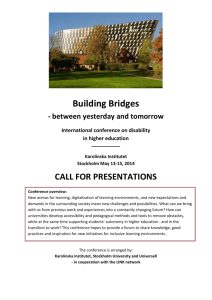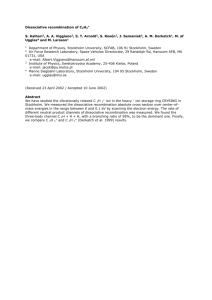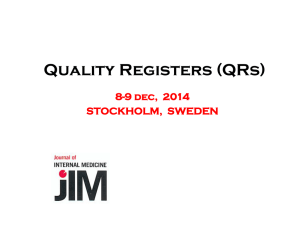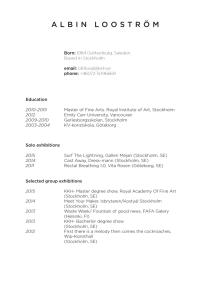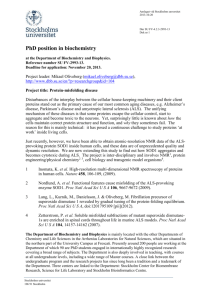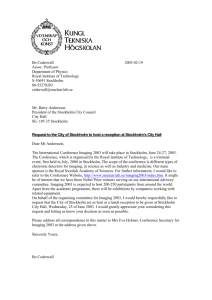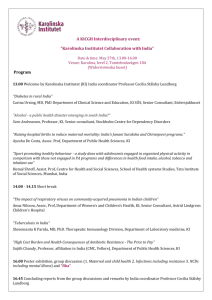How could cultural activities for employees and managers improve
advertisement
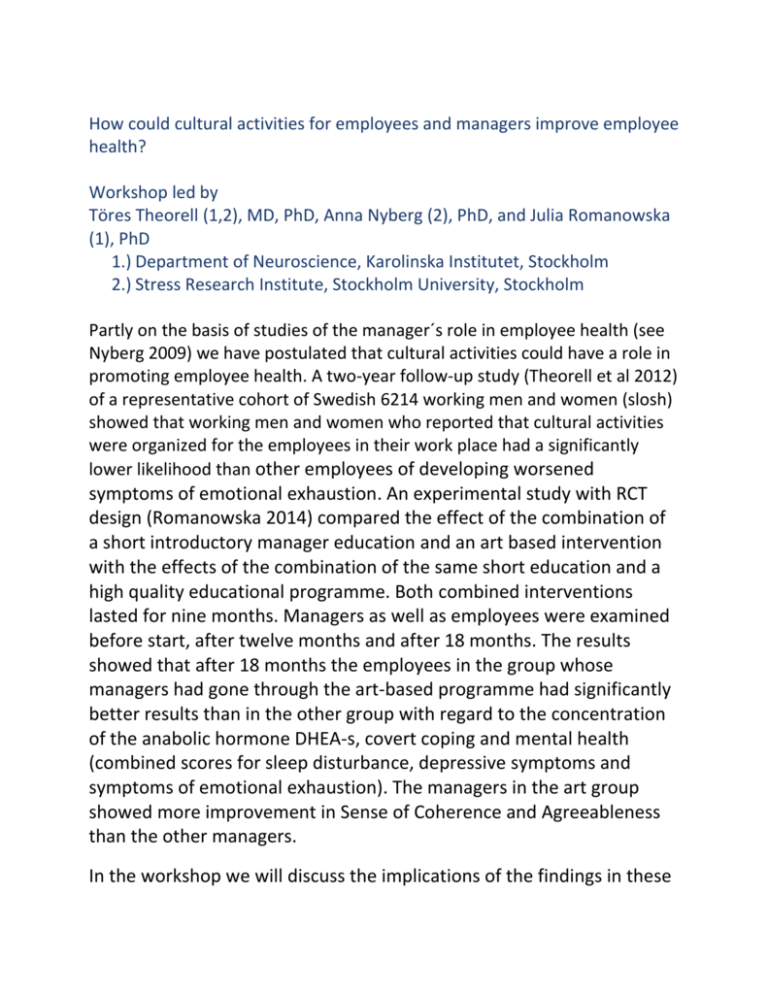
How could cultural activities for employees and managers improve employee health? Workshop led by Töres Theorell (1,2), MD, PhD, Anna Nyberg (2), PhD, and Julia Romanowska (1), PhD 1.) Department of Neuroscience, Karolinska Institutet, Stockholm 2.) Stress Research Institute, Stockholm University, Stockholm Partly on the basis of studies of the manager´s role in employee health (see Nyberg 2009) we have postulated that cultural activities could have a role in promoting employee health. A two-year follow-up study (Theorell et al 2012) of a representative cohort of Swedish 6214 working men and women (slosh) showed that working men and women who reported that cultural activities were organized for the employees in their work place had a significantly lower likelihood than other employees of developing worsened symptoms of emotional exhaustion. An experimental study with RCT design (Romanowska 2014) compared the effect of the combination of a short introductory manager education and an art based intervention with the effects of the combination of the same short education and a high quality educational programme. Both combined interventions lasted for nine months. Managers as well as employees were examined before start, after twelve months and after 18 months. The results showed that after 18 months the employees in the group whose managers had gone through the art-based programme had significantly better results than in the other group with regard to the concentration of the anabolic hormone DHEA-s, covert coping and mental health (combined scores for sleep disturbance, depressive symptoms and symptoms of emotional exhaustion). The managers in the art group showed more improvement in Sense of Coherence and Agreeableness than the other managers. In the workshop we will discuss the implications of the findings in these studies. Can cultural activities be used for improvement of the work environment?
